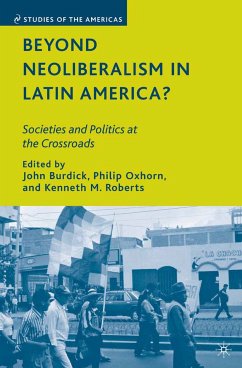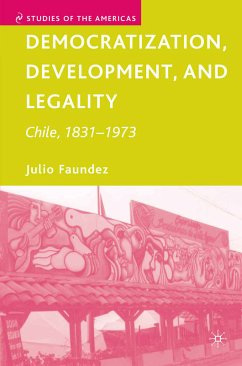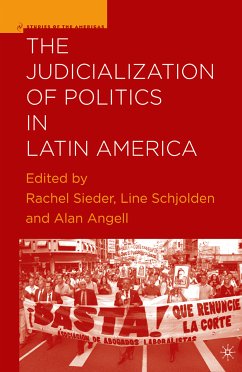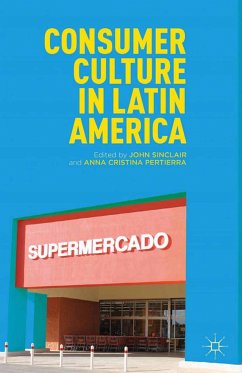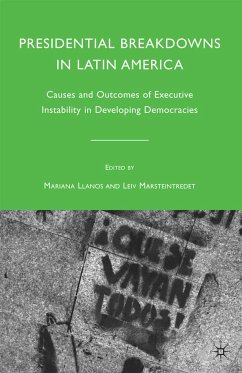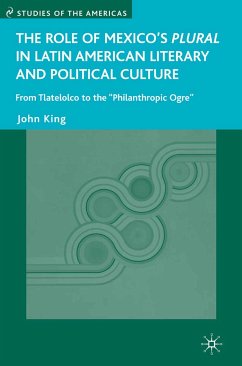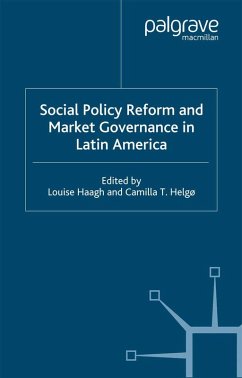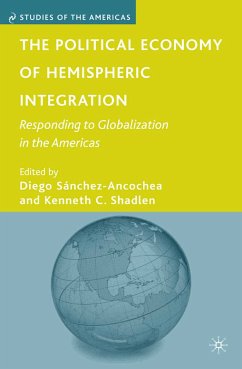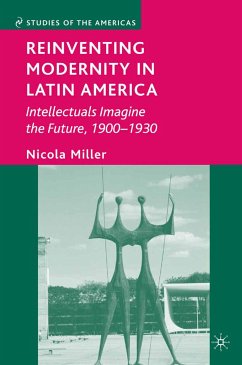
Governance after Neoliberalism in Latin America (eBook, PDF)
Versandkostenfrei!
Sofort per Download lieferbar
40,95 €
inkl. MwSt.
Weitere Ausgaben:

PAYBACK Punkte
20 °P sammeln!
Two decades of neoliberalism in Latin America have left legacies of uneven growth, inequity and lackluster democracy. This book offers an original and grounded discussion of what governance after neoliberalism means in Latin America and examines how states are pursuing more independent development strategies and models of democracy.
Dieser Download kann aus rechtlichen Gründen nur mit Rechnungsadresse in A, B, BG, CY, CZ, D, DK, EW, E, FIN, F, GR, HR, H, IRL, I, LT, L, LR, M, NL, PL, P, R, S, SLO, SK ausgeliefert werden.




